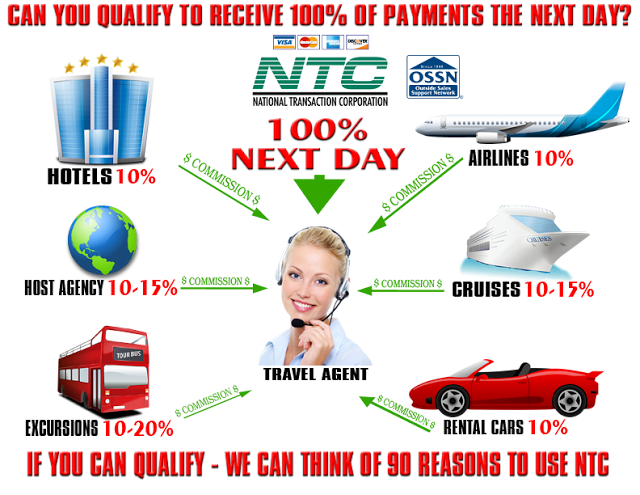Category: Travel Agency Agents

May 23rd, 2016 by Elma Jane
Today, the information thieves want most from your customers is not their credit card numbers but their email addresses and account passwords. Criminals used stolen credentials to gain control of consumer accounts and open new accounts using their names to defraud merchants.
Data encryption and payment security are crucial for merchants, but so is helping customers keep their credentials secure. Encouraging customers to keep their information secure is a good thing.
Help customers practice good password habits – set up your system to require good passwords. Have account rules in place that require more secure passwords. ( a minimum number of characters and a mix of character types).
Remind customers what they can expect from your business – like your employee will never ask for customer account passwords or payment account information via email or no one from your company will call to ask for account passwords or credit-card information.
Offer security tips ahead of peak season – by reminding them ahead of time about account safety. Your business may receive a high volume of travel booking which means peak time for fraud attempts that need to be screened for fraud.
Keep your own fraud-prevention program updated – fraud prevention is an ongoing cost of doing business for merchants, but it doesn’t have to be too much expense. Working with your customers to keep their data and yours secure, will strengthen your business with them while protecting your business from fraud.
Posted in Best Practices for Merchants, Travel Agency Agents Tagged with: credit card, customers, data, fraud, merchants, payment, payment security, Security, travel

May 18th, 2016 by Elma Jane
Terminals are ready, but the software isn’t – many merchants have EMV capable equipment, but has not been activated yet because it still needs to be certified.
The certification process includes security and compatibility tests.
For a small merchant, all you need to worry about is your equipment or software is EMV certified.
For software, developers, terminal manufacturers needs to get certification before they can deploy their products to merchants.
So many merchants who want to accept EMV, are now just waiting for their POS system to get necessary upgrades, which they can’t do until they’re certified.
Slower Checkout Time – common complaint by consumers. Dipping takes several seconds longer than swiping the card. There’s also a chance of forgetting your card because you have to leave your card inserted while waiting for the transaction to get approved.
The fastest Path to EMV – Depending on the nature of your business, the risk of landing yourself for credit card fraud is slim. The easiest way is to contact your merchant account provider and they will tell you what equipment and software you need and how much it will cost.
For our retail customers, we have the iCT250, the smart and compact desktop device designed for maximum efficiency. iCT250 offers a smart and effective payment experience on minimum counter space. Accept all electronic payment methods including EMV chip & PIN, magstripe and NFC/contactless.
For card-not-present, we have our payment gateway platform that accepts payments your way Online, In-Store and On the Go.
- E-commerce – manage your e-com business along with all of your other payment transactions in one, secure place.
- In-Store – accept payments in person with ease using your computer and a broad range of an optional device, like card readers and PIN pads.
- Back Office Mail & Phone – Process you mail and phone payments online. Converge is ideal for recurring and installment payments too.
- Mobile – Take payments on the go with an intuitive mobile app that’s compatible with most smartphones and tablets.
For more details give us a call at 888-996-2273 or check out our website for our products and services.
Posted in Best Practices for Merchants, Credit Card Reader Terminal, e-commerce & m-commerce, EMV EuroPay MasterCard Visa, Internet Payment Gateway, Mail Order Telephone Order, Merchant Account Services News Articles, Mobile Payments, Near Field Communication, Point of Sale, Smartphone, Travel Agency Agents Tagged with: card, card readers, Chip & PIN, consumers, contactless, credit card, customers, e-commerce, electronic payment, EMV, fraud, in-store, magstripe, merchant account, merchants, mobile, nfc, online, payment, payment gateway, PIN pads, POS, provider, Security, terminals, transaction

May 17th, 2016 by Elma Jane
Businesses run the risk of fraud, but some are more likely to be targeted than others.
Simply being aware that you are operating at a higher risk than normal and putting up your defenses can help you protect your business from online fraud.
By learning more about the types of online fraud, you could experience what to do if you expect a fraudulent transaction. You can also mitigate your risk, even if you sell high-risk items to high-risk customers.
Posted in Best Practices for Merchants, Travel Agency Agents Tagged with: customers, fraud, high risk, online fraud, risk, transaction

May 13th, 2016 by Elma Jane
Getting new clients are one of the most time-consuming and expensive parts of running a travel agency.
Here are some travel agency marketing tools that are cost-effective and time-saving to help you.
E-Marketing – email marketing is a key to connecting with your customer on an ongoing basis. You want to make sure you’re in touch since they could plan a trip on a moment’s notice.
Personalized Email Addresses – Gmail is one of the top lists of a free travel agency marketing tool. Gmail is easy-to-use and effectively manages your inbox with labels.
- Gmail is free as long as you have less than 10 email users and each user sends less than 500 emails per day.
- Use your personalized travel agency domain name email address instead of gmail.com.
- Promote your travel agency name using YourName@YourAgencyWebsite.com email address.
CRM Tool – a salesperson’s success usually can be traced back to an efficient sales process. The sales process is the method of sales person takes a perspective customer from lead to a sale.
- Online CRM (Customer Relationship Management) tool can help you manage that process and help you close that sale.
- CRMs are an investment and are an essential travel agency marketing tool.
Website Live Chat – free instant messenger client, a great travel agency marketing tool.
- Choose to interact with the visitor to answer their questions.
- Promote it as another channel existing clients can reach you.
- There’s also a free iPhone app, so you can interact with clients on the go. All for free!
Posted in Best Practices for Merchants, Travel Agency Agents Tagged with: crm, customer, travel, travel agency

May 10th, 2016 by Elma Jane
What is (AML) Anti-Money Laundering?
Anti-money laundering (AML) is a set of regulations designed to stop the practice of generating income through illegal actions.
AML regulations place an obligation on financial institutions such as NTC to maintain accurate customer records to ensure they know who their merchants are and the nature of their business and that these institutions are not aiding in money-laundering activities.
Anti-Money Laundering (AML) Break Down:
AML laws and regulations target activities that include
- Corruption of public funds and evasion of tax, as well as all activities that aim to conceal these deeds
- Market manipulation
- The trade of illegal goods
Financial institutions are expected to comply with Anti-Money Laundering laws and make sure that clients are aware of these laws.
Posted in Best Practices for Merchants, Travel Agency Agents Tagged with: customer, financial institutions, funds, merchants

May 9th, 2016 by Elma Jane
Preventing double refunds depend on the timing of the chargeback. It is a bit challenging, the key lies in attention to detail.
A chargeback may already exist for the transaction when a customer say they just spoke to their bank. Merchants must pay attention to this big clue.
There are different time limits for resolving disputes before they become actual chargebacks, depending on the issuing bank.
- If customers indicate they did contact their bank, merchants need to call the issuing bank to determine if a case number has been assigned to the transaction dispute.
- If there is a case number that has been assigned, the merchant can disregard the refund request.
If a case number has not been assigned, merchants need to inform the bank that a refund has been initiated and a chargeback is not necessary.
Preventing Double Refunds Before Chargebacks are Filed
Provide prompt refunds to customers when they are warranted.
- Estimate when the funds will be available.
- Let customers know that a refund has been issued.
- Take care to ensure the credit isn’t process as a debit.
Posted in Best Practices for Merchants, Travel Agency Agents Tagged with: bank, chargeback, credit, customer, debit, merchants, refunds, transaction

May 9th, 2016 by Elma Jane
Double refunds are when a customer is provided with two refunds for the same transaction. Chargebacks can be involved in a double refund.
Double Refunds Happen When:
Chargebacks are filed after a refund is issued. The consumer contacts the merchant and requests a refund, but the funds aren’t returned immediately. The consumer thinks the request for the refund was ignored and files a chargeback. Then both the chargeback and the refund are being processed.
Chargebacks are filed before a refund is issued. The consumer calls the bank and initiates a chargeback. Then, the consumer calls the merchant and expresses dissatisfaction. To try to avoid a chargeback, the merchant provides a refund. However, the merchant has no idea of the fact that a chargeback has already been filed because the consumer calls the bank first
Even thou a merchant provided a refund with a customer that doesn’t guarantee that a chargeback won’t be initiated. Same thing with chargeback that has been filed doesn’t guarantee that customer won’t contact the merchant and demand a refund as well.
Just because a merchant provided a customer with a refund that doesn’t guarantee that a chargeback won’t be initiated. Same thing with chargeback that has been filed doesn’t guarantee that customer won’t contact the merchant and demand a refund as well.
It is possible for the customer to receive a double refund for the one purchase transaction.
Posted in Best Practices for Merchants, Travel Agency Agents Tagged with: bank, chargebacks, consumer, customer, merchant, refunds, transaction
May 6th, 2016 by Elma Jane
A data breach is any instance in which secure data information has been released or stolen intentionally or unintentionally. The organization that exposed or lost your information will notify you. The steps you should take depend on the type of information that was lost or stolen. In general, you may choose to do one or more of the following:
- Monitor all bank and other accounts for suspicious activity.
- Change all passwords, PINs, or user names associated with compromised accounts.
- Order a copy of your credit report.
- Place a fraud alert or credit freeze on your credit file.
Posted in Best Practices for Merchants, Credit Card Security, Travel Agency Agents Tagged with: accounts, bank, credit, data, data breach, fraud

May 5th, 2016 by Elma Jane
- A terminal lease carries with it a 48-month lease agreement.
- The cost of that lease can run anywhere from $50-$100/month.
That is a LONG time to be paying for a terminal equipment that doesn’t cost more than $400 these days.
- If a merchant pays upfront the cost of the purchase is completely tax deductible, you don’t need to pay $2400 for a terminal equipment that costs $400.
If you can’t pay cash for your credit card terminal, you can just charge it to a business credit card. The interest paid is still tax deductible. That’s a savings of nearly $2,000 that can be better directed toward developing and expanding your business.
Need to set up account give us a call at 888-996-2273.
Posted in Best Practices for Merchants, Travel Agency Agents Tagged with: credit card, merchant, terminal

May 4th, 2016 by Elma Jane
Credit Card Terminal for…..
Some processors offer a free terminal to their merchants, but as we all know, there ain’t no such thing as a free lunch! A free terminal carries with it a yearly Terminal Replacement or Warranty charge of $50 to $100/year. That’s still much less than what a lease would cost you, but it’s not really FREE
If you’re not currently in a lease but are considering one, don’t be deceived. Instead, calculate the total cost of leasing vs. owning. The best and most affordable option still lies in ownership.
If you need to set up an account give us a call at 888-996-2273
Posted in Best Practices for Merchants, Travel Agency Agents Tagged with: credit card, merchants, processors, terminal








